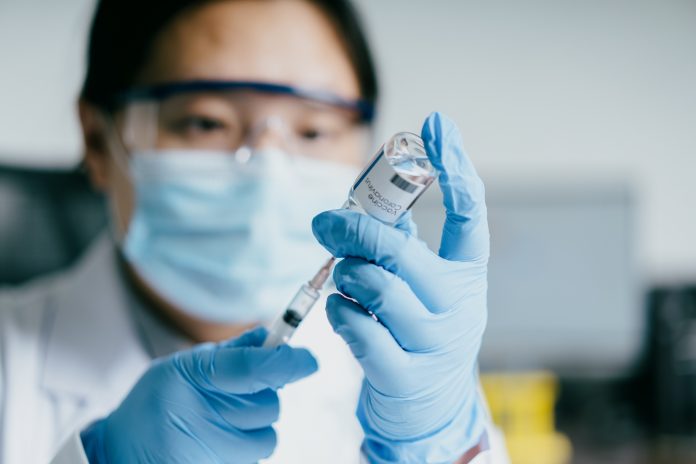
New research, led by University of Cambridge investigators, shows they have developed a new vaccine technology that provides a broad range of protection against coronaviruses, even those that don’t yet exist. This approach to vaccine development is called “proactive vaccinology,” which seeks to build disease-fighting immunity before some pathogens emerge.
Their approach, reported in Nature Nanotechnology, trains the immune system to recognize the specific regions of eight coronaviruses including SARS-CoV-1, SARS-CoV-2, and several others that are currently circulating in bats and have the potential to jump to humans and cause a pandemic. The team has demonstrated the new vaccine’s effectiveness in mouse models. It works because the eight regions targeted also appear in many related coronaviruses. By training the immune system to attack these regions, as opposed to each individual virus, it provides protection against others not represented in the vaccine—including those that haven’t been identified.
For example, the researchers noted that their new vaccine doesn’t include the SARS-CoV-1 coronavirus, which caused the 2003 outbreak, but still induces an immune response to it.
“Our focus is to create a vaccine that will protect us against the next coronavirus pandemic and have it ready before the pandemic has even started,” said first author of the study Rory Hills, a graduate researcher at the University of Cambridge department of pharmacology.
Senior author Mark Howarth, PhD, a professor at the University of Cambridge department of pharmacology, added: “Scientists did a great job in quickly producing an extremely effective COVID-19 vaccine during the last pandemic, but the world still had a massive crisis with a huge number of deaths. We need to work out how we can do even better than that in the future, and a powerful component of that is starting to build the vaccines in advance.”
While conventional vaccines include a single antigen to train the immune system to target a single specific virus, these vaccines may not protect against a diverse range of existing coronaviruses, or against pathogens that are newly emerging. As witnessed by the latest pandemic and the emergence of different SARS-C0V-2 variants, finding ways to develop proactive vaccines is a powerful new approach.
Called the Quartet Nanocage vaccine, the new vaccine attaches chains of different viral antigens to nanoparticles using what the investigators dub a “protein superglue.” With multiple antigens included in each of these chains, the vaccine trains the immune system to target the eight regions that are shared across a range of different coronaviruses.
Even in mice that were pre-immunized with SARS-CoV-2, the vaccine demonstrated a broad immune response. Further, the Quartet Nanocage design is simpler than other vaccines currently in development to provide broad protection, which could help speed its path to clinical trials.
This new work is a collaboration between the University of Cambridge researchers and teams at the University of Oxford and Caltech. It improves upon earlier work by the Oxford and Caltech groups to develop a novel all-in-one vaccine against coronaviruses. Set to enter early clinical trials in 2025, the Oxford/Caltech vaccine could face significant hurdles due to its complexity, which may limit its large-scale production.
The hope is the newly created vaccine will overcome this production hurdle and become an important tool in fighting pandemics of the future.
“We don’t have to wait for new coronaviruses to emerge,” said Howarth. “We know enough about coronaviruses, and different immune responses to them, that we can get going with building protective vaccines against unknown coronaviruses now.”













